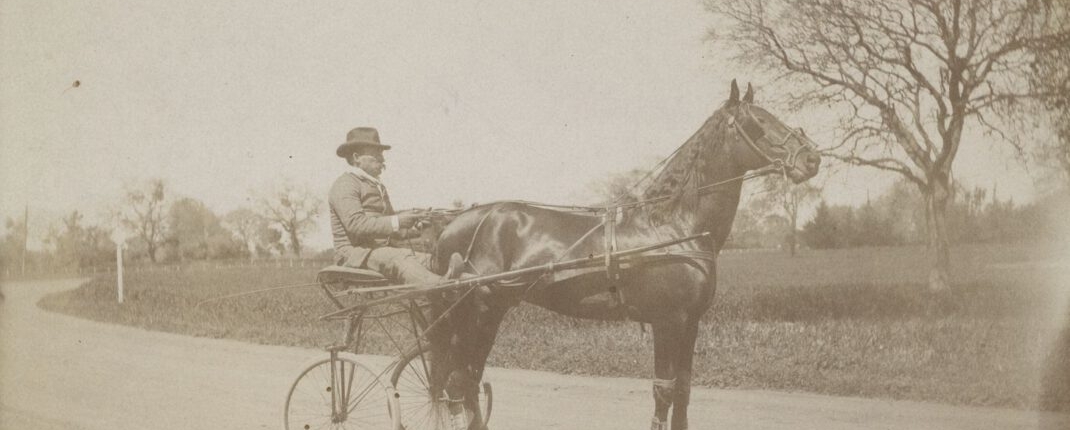The horse who never lost
by Lisa Harkema
He had to wait until he was almost 40 before he had enough money to buy a horse, and then had to settle for broodmares others didn’t want. Then he was refused to breed to the stallions of his choice and had to settle for an untested and relatively cheap debut stallion. Despite all this, Charlie W Williams bred an undefeated superstar of his time in Axtell, who in turn sired one of the sport’s foundation sires.
Williams was not born into money and had to work his way up. According to Ken McCarr in his book The Kentucky Harness Horse, “CW Williams, born in Chatham, New York, in 1856, was taken as a boy to Buchanan County, Iowa, where when not busy on his father’s farm he hired out to neighbors for twenty-five cents a day. Later the family moved to the town of Jesup, where young Williams was employed as a store clerk for five dollars a month plus board and the privilege of sleeping under the counter. After losing that job in the panic of 1873, Williams went to Chicago, where he drove a milk wagon and managed to save some of his twenty-dollar-a-month wages. Then he returned home, to high school and a night job at the railroad station, where he picked up telegraphy. After graduation, Williams started a business of his own, shipping Iowa butter and eggs to New York. He also became the night telegraph operator at Independence, Iowa, a few miles from Jesup, married and settled at Independence.”
Williams had a buckskin trotter which he raced at the county fairs, but the horse lacked ability and didn’t perform so well. The desire for a really good horse was strong in Williams, though, who spent quite a bit of time studying pedigrees. When Henry and Frank Stout at the Highland Stock Farm in Independence wanted to get rid of some its broodmares, they singled out several mares that failed to meet their standards. These included the unstarted duo of Gussie Wilkes and Lou, the latter with a pedigree void of Hambletonian and initially not even considered a standardbred. In 1884 Williams picked up the two mares for $125 and $75, respectively, and the following spring he sent them to Kentucky to be bred.
Hello!
I hope you will find our site interesting and educational while digging through all the material we have collected over the years.
Articles
We have a unique collection of articles on the site, historic and informative, and we keep filling it, so do stop by every now and then to check it out. New additions will be announced in the news section too.
Photos
A collection of hundreds of out of the ordinary trotters or significant horses through history of our sport. You will find photos, lifetime marks and earnings, pedigree with cross links to other horses in the collection

